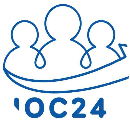Read the following passage and mark the letter A, B, C, or D to indicate the correct answer to each of the questions.
The issue of equality for women in British society first attracted national attention in the early 20th century, when the suffragettes won for women the right to vote. In the 1960s, feminism - the belief that women and men are equal in abilities and should have equal rights and opportunities - became the subject of intense debate when the women's lib movement encouraged women to reject their traditional supporting role and to demand equal status and equal rights with men in areas such as employment and pay.
Since then, the gender gap between the sexes has been reduced. The Equal Pay Act of 1970, for instance, made it illegal for women to be paid less than men for doing the same work, and in 1975 the Sex Discrimination Act aimed to prevent either sex having an unfair advantage when applying for jobs. In the same year the Equal Opportunities Commission was set up to help people claim their rights to equal treatment and to publish research and statistics to show where improvements in opportunities for women need to be made. Women now have much better employment opportunities than formerly, though they still tend to get less well-paid jobs than men, and very few are appointed to top jobs in industry.
Many people believe that there is still a long way to go before women are treated as equals in employment. In education, however, girl's and women's opportunities have improved rapidly and in public employment there are policies to increase the proportion of women employed, which is still very low at senior levels.
The word 'intense' in the passage is closest in meaning to ____.
heatedfirmlightlivelyHướng dẫn giải:Intense = mãnh liệt

